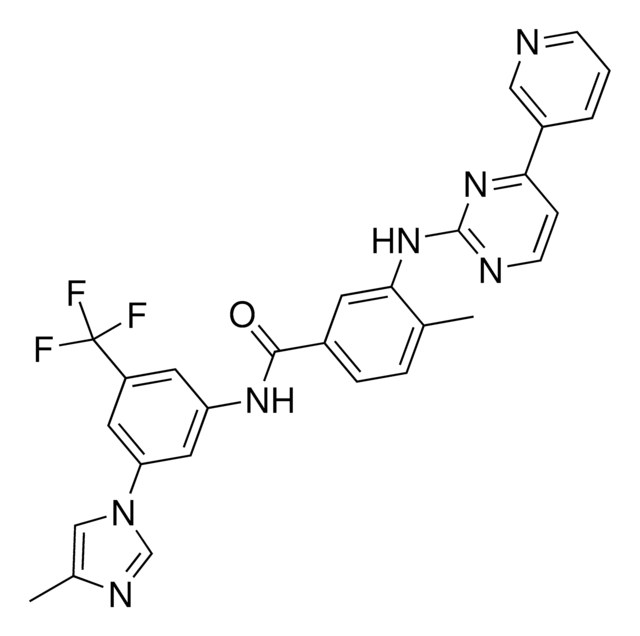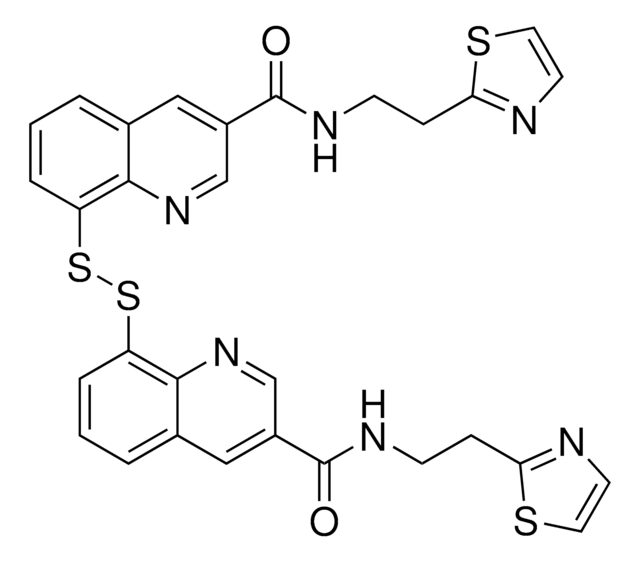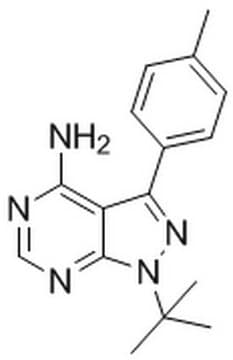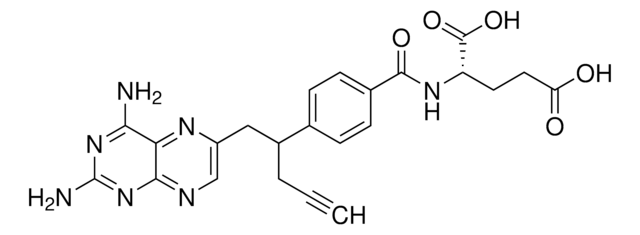SML2589
Dasatinib
≥98% (HPLC), powder, protein kinases inhibitor
Synonym(s):
BMS 354825, BMS-354825, BMS354825, N-(2-Chloro-6-methylphenyl)-2-[[6-[4-(2-hydroxyethyl)-1-piperazinyl]-2-methyl-4-pyrimidinyl]amino]-5-thiazolecarboxamide
About This Item
Recommended Products
product name
Dasatinib, ≥98% (HPLC)
Assay
≥98% (HPLC)
form
powder
color
white to beige
solubility
DMSO: 2 mg/mL, clear
storage temp.
−20°C
SMILES string
CC1=NC(NC2=NC=C(C(NC3=C(C=CC=C3Cl)C)=O)S2)=CC(N4CCN(CC4)CCO)=N1
InChI
1S/C22H26ClN7O2S/c1-14-4-3-5-16(23)20(14)28-21(32)17-13-24-22(33-17)27-18-12-19(26-15(2)25-18)30-8-6-29(7-9-30)10-11-31/h3-5,12-13,31H,6-11H2,1-2H3,(H,28,32)(H,24,25,26,27)
InChI key
ZBNZXTGUTAYRHI-UHFFFAOYSA-N
Gene Information
human ... ABL1(25) , BLK(640) , EPHA2(1969) , FGR(2268) , FRK(2444) , FYN(2534) , HCK(3055) , KIT(3815) , LCK(3932) , LYN(4067) , PDGFRB(5159) , SRC(6714) , SRMS(6725) , YES1(7525)
Looking for similar products? Visit Product Comparison Guide
Application
- as a protein kinase inhibitor to study its effects on macrophage polarization, lipogenesis, western diet-induced progression of simple steatosis into steatohepatitis (NASH), and liver fibrosis in mice
- as an SRC tyrosine kinase inhibitor to study its effects on hepatocellular carcinoma cells
- as a tyrosine kinase inhibitor to study its effects on autophagy in neuronal cells
Biochem/physiol Actions
Signal Word
Danger
Hazard Statements
Precautionary Statements
Hazard Classifications
Aquatic Chronic 1 - Carc. 2 - Eye Dam. 1 - Repr. 2 - Skin Irrit. 2 - STOT RE 1
Target Organs
Gastro-intestinal system
Storage Class Code
6.1C - Combustible acute toxic Cat.3 / toxic compounds or compounds which causing chronic effects
WGK
WGK 3
Flash Point(F)
Not applicable
Flash Point(C)
Not applicable
Certificates of Analysis (COA)
Search for Certificates of Analysis (COA) by entering the products Lot/Batch Number. Lot and Batch Numbers can be found on a product’s label following the words ‘Lot’ or ‘Batch’.
Already Own This Product?
Find documentation for the products that you have recently purchased in the Document Library.
Customers Also Viewed
Our team of scientists has experience in all areas of research including Life Science, Material Science, Chemical Synthesis, Chromatography, Analytical and many others.
Contact Technical Service



















